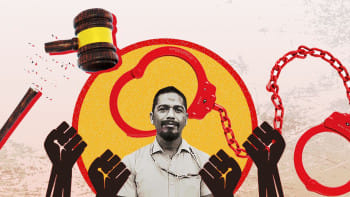A pathway to prosperity through basic freedoms

The perennial debate persists: Does prosperity foster greater freedoms, or is it the other way around?
The Atlantic Council's ground-breaking research into the linkage between freedom and prosperity offers a compelling case for the latter. Freedom isn't merely a byproduct of prosperity; it's the very engine that propels it.
Their report on Bangladesh, being released today, provides some sobering insights. Let me start with the Atlantic Council's Freedom Index, which ranks Bangladesh 141st out of 164 countries, placing it in the "mostly unfree" category. Perhaps more troubling, since 2000, Bangladesh has fallen 25 places. Atlantic Council's index is different from other indexes; it is not just about elections. Instead, it measures economic, political, and legal freedoms. In fact, Bangladesh ranks higher on political freedoms than it does on economic and legal freedoms.
Bangladesh fares better on the Prosperity Index, where it ranks 99th out of 164 countries, placing it into the "mostly unprosperous" category. Here, the index is broader than just GDP per capita. It also includes health, inequality, environment, minority rights, and education.
To be certain, this snapshot masks the huge development successes Bangladesh has achieved since Independence. But it also highlights the enormous challenge ahead in moving from being a "mostly unprosperous" least developed country today to a middle-income country in 2026 to a developed country by 2041, as forecast in the government's Vision 2041 plan.
Out of the 164 countries the Atlantic Council has looked at, not a single country ranked "mostly unfree" is also ranked "prosperous." This suggests that to become prosperous, Bangladesh must then take bold steps to expand economic, political, and legal freedoms for its people.
This isn't a one-size-fits-all solution. Every nation faces unique challenges on its path to freedom and prosperity. The United States, a friend and development partner to Bangladesh for over 50 years, acknowledges its shortcomings in this area. Every country grapples with issues like corruption, and securing economic and political rights. The key lies not in avoiding problems, but in actively acknowledging and tackling them.
The United States remains firmly committed to supporting both freedom and prosperity in Bangladesh. We will continue exploring ways to assist Bangladesh in achieving its Vision 2041 goals. We strongly believe that by unlocking its full potential through increased freedoms, Bangladesh can become the next Asian Tiger—a Royal Bengal Tiger, of course!
His Excellency Peter Haas is ambassador of the United States to Bangladesh.
Views expressed in this article are the author's own.
Follow The Daily Star Opinion on Facebook for the latest opinions, commentaries and analyses by experts and professionals. To contribute your article or letter to The Daily Star Opinion, see our guidelines for submission.

 For all latest news, follow The Daily Star's Google News channel.
For all latest news, follow The Daily Star's Google News channel. 









Comments